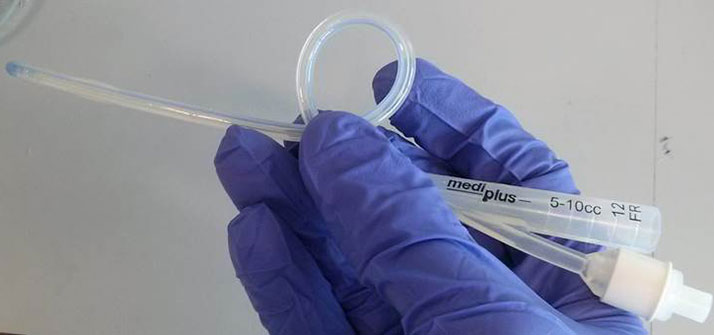The bacteria resistant materials were discovered in 2012 by scientists in the Schools of Pharmacy and Life Sciences - they were discovered by
identifying next generation biomaterials for use in medical devices that prevent bacterial attachment and hence avoid medical device-associated infections. The go-ahead has now been given for human trials to take place in hospitals with the CE marked urinary catheters developed by Camstent.
 Professor Morgan Alexander
Professor Morgan Alexander
Morgan Alexander, Professor of Biomedical Surfaces, who led the team funded by a Wellcome Trust Translation Award that made the initial discovery said: "This has gone all the way from the discovery of a new class of materials that no one could have predicted all the way to clinical trials and that’s a massive achievement.
"This is only the second medical product to ever come out of this type of high throughput materials discovery that I am aware of and although the new CE mark is for urinary catheters only we have had a lot of interest from companies who manufacture other medical devices. This is an exciting time."
Paul Williams, Professor of Molecular Microbiology in the School of Life Sciences said: “In the context of antimicrobial resistance these materials could be a major breakthrough. Millions of urinary catheters are used every day around the world and anybody who has a catheter for longer than a week is likely to get an infection.”
More information can be found here.

Coated catheter
Posted on Monday 16th April 2018